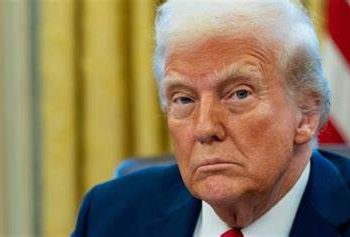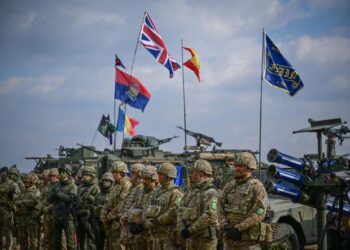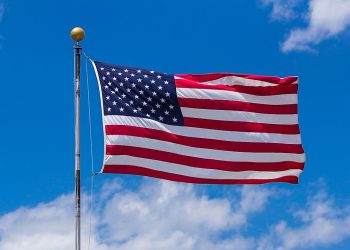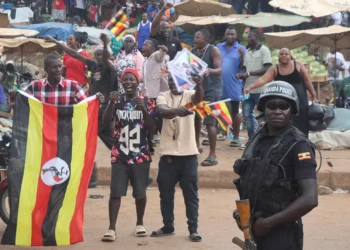Rwanda and the Democratic Republic of Congo have concluded a peace agreement in Washington, bringing hope for an end to the devastating conflict that has ravaged eastern DRC and displaced millions of civilians.
The accord, signed Friday at the U.S. State Department with Qatari mediation, represents the latest attempt to resolve tensions that have destabilized the mineral-rich region for decades.
President Donald Trump, who facilitated the agreement by hosting both nations’ foreign ministers at the White House, hailed the deal as a major diplomatic achievement. Trump declared that the violence and destruction would cease, ushering in what he described as a new era of hope and opportunity for the entire region. The American president also emphasized potential economic benefits, specifically mentioning anticipated U.S. access to Congolese mineral resources.
The peace initiative comes after renewed violence involving the M23 rebel movement, an ethnic Tutsi militia that has captured significant territory in eastern DRC this year, including the strategic city of Goma. International observers have consistently linked M23 to Rwandan support, allegations that Kigali has repeatedly denied while maintaining its right to defensive measures against threats from Congolese territory.
Central to the agreement is the commitment by both nations to cease all forms of state support for armed groups operating across their shared border. Rwanda has particularly emphasized the need to neutralize the Democratic Forces for the Liberation of Rwanda, a Hutu militia with historical connections to perpetrators of the 1994 genocide. Rwandan Foreign Minister Olivier Nduhungirehe stressed that eliminating FDLR support must be the immediate priority under the new accord.
The Rwandan minister, while supporting the agreement, expressed measured optimism given the region’s track record of failed peace initiatives. Nduhungirehe acknowledged widespread uncertainty stemming from numerous previous agreements that failed to achieve lasting implementation, suggesting cautious expectations for the current deal.
Congolese Foreign Minister Therese Kayikwamba Wagner emphasized the importance of respecting national sovereignty within the framework of the agreement. She described the accord as offering a rare opportunity to achieve genuine transformation beyond mere diplomatic rhetoric, while acknowledging that some regional wounds may never completely heal despite potential progress.
The agreement establishes a joint security coordination mechanism to monitor compliance and prevent future violations. Additionally, both countries have committed to developing a regional economic integration framework within three months, though specific details remain unclear.
Trump’s comments during the signing ceremony revealed limited familiarity with the conflict’s historical complexities. The president made reference to past violence involving machetes, apparently alluding to the Rwandan genocide, while claiming personal credit for the diplomatic breakthrough. He explicitly stated that the United States would gain substantial mineral rights in the DRC, highlighting the country’s valuable cobalt and lithium deposits currently dominated by Chinese mining operations.
International reaction has been largely positive, with United Nations Secretary-General António Guterres describing the agreement as a significant step toward regional de-escalation and stability. European leaders from Germany and France have similarly welcomed the development as a historic opportunity requiring careful implementation.
However, criticism has emerged from notable voices within the region. Nobel Peace Prize winner Dr. Denis Mukwege, renowned for his work with conflict survivors, condemned the agreement as disproportionately favoring Rwanda and the United States. Mukwege argued that the deal effectively rewards aggression while legitimizing resource exploitation and forcing the DRC to sacrifice justice for peace.
Human rights organizations have also raised concerns about the agreement’s limitations. Physicians for Human Rights highlighted the absence of accountability mechanisms for widespread human rights violations committed during the prolonged conflict, suggesting that sustainable peace requires addressing past injustices.
The success of this latest peace initiative will ultimately depend on consistent implementation by both governments and their ability to control armed groups operating in border regions. Previous agreements have foundered on enforcement challenges and competing national interests, making sustained international monitoring essential for achieving lasting results.
For civilians in eastern DRC who have endured years of displacement, violence, and economic disruption, the Washington agreement represents both hope and uncertainty. The real test will be whether diplomatic commitments translate into tangible security improvements and economic opportunities for communities that have suffered through decades of instability.


















